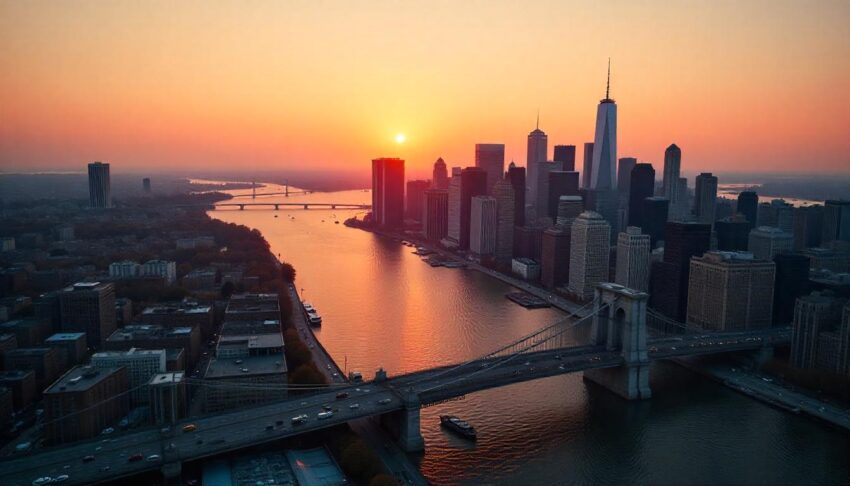U.S. Proposes Major Expansion of Travel Restrictions: What You Need to Know

A recent leak from the State Department has set off alarms regarding a proposed expansion of travel bans that could have far-reaching implications for citizens from multiple nations. According to the memo reviewed by The Washington Post, governments of the targeted countries now face a strict 60-day deadline to comply with new U.S. immigration standards or risk severe entry restrictions.
Rationale Behind the New Restrictions
The State Department memo, signed by Secretary of State Marco Rubio, outlines a range of national security and policy concerns that justify this initiative. The targeted nations largely consist of countries:
- Lacking reliable civil documentation
- Exhibiting high levels of government corruption
- Having significant populations prone to overstaying visas
- Involved in dubious “citizenship for sale” schemes that lack actual residency stipulations
Additionally, activities such as antisemitism and anti-American sentiment reportedly associated with nationals from some of these countries have also influenced this decision. The U.S. is pressing these countries to repatriate deported citizens and establish “safe third country” agreements.
Countries Under Scrutiny
The proposed restrictions target a total of 36 nations, spanning various regions including:
Africa (25 nations):
- Angola
- Benin
- Burkina Faso
- Cabo Verde
- Cameroon
- Côte d’Ivoire
- Democratic Republic of Congo
- Djibouti
- Egypt
- Ethiopia
- Gabon
- Gambia
- Ghana
- Liberia
- Malawi
- Mauritania
- Niger
- Nigeria
- Senegal
- South Sudan
- Sao Tome and Principe
- Tanzania
- Uganda
- Zambia
- Zimbabwe
Caribbean (4 nations):
- Antigua and Barbuda
- Dominica
- Saint Kitts and Nevis
- Saint Lucia
Asia and Central Asia (2 nations):
- Bhutan
- Kyrgyzstan
Pacific Islands (5 nations):
- Cambodia
- Tonga
- Tuvalu
- Vanuatu
- Syria (notably included despite prior bans)
Previous Restrictions and Their Implications
This latest proposal follows the June 4 Presidential Proclamation that imposed full or partial travel bans on 20 countries, primarily citing national security and inadequate identity verification procedures. Countries such as Iran, Libya, Sudan, and Yemen were placed under full restrictions, while several African nations faced conditional bans.
Each region has its own challenges contributing to these policies:
-
Middle East and North Africa: Concerns over terrorism and strained diplomatic relations elevated the security risks associated with these nations.
-
Sub-Saharan Africa: Countries such as Chad and Somalia faced complete bans due to security and citizenship issues.
- Latin America: Nations like Haiti and Cuba experienced partial bans largely due to troubling governance.
Public Sentiment and Protests
The whispering winds of discontent are growing louder in the United States. Nationwide protests erupted in response to existing travel restrictions, with many Americans viewing the latest proposal as racially charged. The “No Kings” demonstrations on June 14, 2025, saw participants flooding the streets in over 2,000 locations, voicing their opposition to what they see as discriminatory immigration policies.
Protesters carried strong messages: “Ban the Ban,” “Immigrants Belong Here,” and “No Walls, No Bans.” These crowds echoed sentiments from earlier protests back in 2017 when the first travel bans created chaos at U.S. airports.
Upcoming Challenges for Affected Countries
With the 60-day deadline ticking down, the governments listed in the State Department memo face tough decisions. Those unable to demonstrate compliance may find their citizens subjected to visa application rejections, cancelled travel plans, or prolonged delays in obtaining work or student permits.
For nations such as Egypt, Ghana, and Ethiopia—countries with long-standing ties to the U.S.—the potential for strained relations looms. Caribbean nations heavily reliant on U.S. tourism may also find themselves in precarious diplomatic waters.
Political Reactions and Legal Challenges
The political landscape surrounding these proposed restrictions is fraught with opposition. Civil rights groups and immigrant advocacy organizations are framing this as a modern iteration of the earlier “Muslim ban” and “Africa ban” initiated during Trump’s presidency. Critics argue the current approach disproportionately impacts Black and brown nations, leading to assertions that it’s less about security and more about political exclusion.
Legal experts also voiced concerns, suggesting that the implementation of such broad bans could lead to lawsuits reminiscent of the chaos that followed Trump’s original travel ban. Those early challenges resulted in significant changes, eventually upheld by the Supreme Court in 2018.
Political Context: Trump and Immigration Policy
As political tensions rise, this proposal arrives at a pivotal moment in U.S. electoral cycles. With Trump publicly declaring his intent to reinstate the travel ban if re-elected, this latest move aligns with his broader immigration strategy and campaign promises for 2024.
The renewed restrictions are closely linked to prior travel bans that initially targeted more than 50 nations worldwide.
Implications for Travelers
If enacted, these new travel restrictions could drastically affect daily lives and international relations. Nationals from the affected countries may face harsh repercussions while dual citizens could be caught in a taxing limbo, especially those with familial ties to the U.S.
As governments grapple with these daunting challenges, the world watches to see which nations can meet the stringent requirements set forth by the U.S. or find themselves locked out.
For an in-depth look at the proposed travel ban expansion and its full implications, Travel and Tour World offers detailed coverage and updates.




